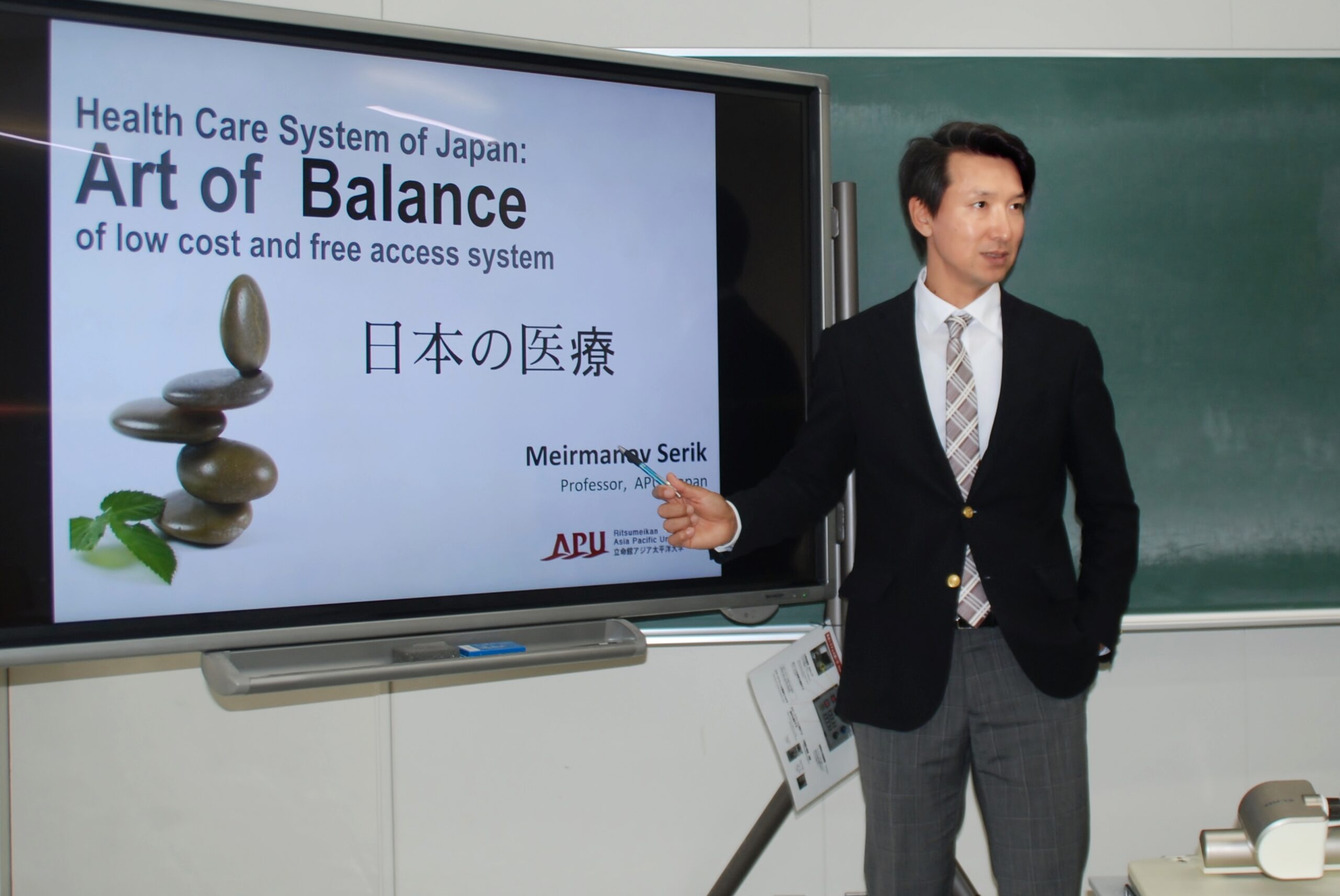ASTANA – When Serik Meirmanov was a young surgeon at the Semei Regional Hospital, involved in treating radiation-related illnesses, he could not have foreseen that his career would one day lead him to a senior academic position in Japan. Now, two decades later, Meirmanov has been appointed vice president of Ritsumeikan Asia Pacific University (APU), a major institution renowned for its multicultural environment and global vision.

Serik Meirmanov. Photo credit: Meirmanov’s personal archives.
In an interview with Egemen Qazaqstan, Meirmanov reflected on the pivotal moment that redirected his path toward international academia.
“The opportunity arose somewhat unexpectedly. Japanese researchers were undertaking studies related to the long-term health effects in the Semei area, and through scientific interactions during their visits to Semei Medical University and also perhaps thanks to my knowledge of English, a connection was made,” said Meirmanov.
“When the unexpected invitation came to pursue a PhD in Japan, Nagasaki Medical School, it felt like a monumental opportunity, almost surreal (…) It felt like a door opening to a world of advanced research and knowledge that I believed could ultimately benefit my home region and country. It was the beginning of a journey that profoundly shaped my career and perspective,” he said.
His doctoral dissertation, conducted in collaboration with Kazakh scientists, focused on the cellular mechanisms of carcinogenesis of thyroid and breast glands and their relationship to radiation effect. He noted that the work was rigorous and demanding but immensely rewarding.
“Pursuing a PhD in Japan was demanding, both academically and culturally. The language barrier was an initial hurdle, requiring dedicated effort to overcome. There were times when I memorized 100 Japanese words per day just to keep up (…) There have been uncountable days when I stayed in the laboratory till midnight,” said Meirmanov.
Meirmanov emphasized how Japan’s academic environment posed challenges but became catalysts for personal and professional growth. Navigating the senpai-kōhai (senior-junior) dynamic, adapting to subtle communication norms, and integrating into research teams enriched his understanding of intercultural collaboration.
Meirmanov credited his mentors for instilling the values that continue to shape his leadership. In Japan, Professor Masahiro Nakashima taught him the importance of scientific rigor. In Kazakhstan, Professor Aikan Akanov influenced his approach to leadership, collaboration, and perseverance.
“Professor Akanov particularly emphasized perseverance, teaching us to view difficulties not as failures but as crucial learning experiences. He also instilled in many of us the value of collaboration and the importance of using our knowledge and international connections to benefit Kazakhstan,” said Meirmanov.
His transition from research to teaching at APU occurred naturally. A faculty position opened in the Graduate Program of Public Health Management, aligning with his dual interests in medicine and public health.
“Joining APU allowed me to leverage my international experience and scientific foundation in an educational setting dedicated to cross-cultural understanding and addressing regional/global issues. It felt like a natural progression, enabling me to contribute directly to nurturing the next generation in fields I was passionate about, combining both scientific and pedagogical activities,” he said.
Meirmanov noted that leadership roles at Japanese universities are highly competitive. His appointment to hold a senior leadership position at a Japanese university reflects more than his academic credentials. At APU, leadership demands intercultural competence, strategic vision, administrative skills, and the ability to foster consensus in a diverse environment.
“While academic credentials form a base, for leadership roles like the Dean position I hold, the emphasis shifts heavily towards the ability to navigate and lead a complex, international, and multicultural academic organization effectively,” he said.
Despite his years abroad, Meirmanov remains connected to Kazakhstan’s scientific community. He highlighted key steps the country could take to strengthen its research sector, including stable research and development (R&D) funding, brain circulation, modern infrastructure, international integration, and stronger links between academia and industry.
He also highlighted the Kazakh Ministry of Science and Higher Education’s efforts, including initiatives such as scientific grants under the Zhas Galym (Young Scientist) project and steps toward greater internationalization.
Reacting to the news of his appointment as vice president, Meirmanov described feeling both honored and responsible.
“While I focus on the duties of the position itself, I do recognize the significance it may hold as a Kazakh national achieving a leadership role in Japanese academia. It felt like an affirmation that dedication, expertise, and commitment are recognized irrespective of nationality in a globalized academic world, ” said Meirmanov.
He also outlined steps to deepen Japan-Kazakhstan scientific ties. These include targeted joint research programs in strategic fields such as health sciences and renewable energy, enhanced mobility schemes for young researchers, regular joint scientific events, and university-level partnerships.
“Over the years, I’ve facilitated opportunities for dozens of medical students and researchers from Kazakhstan to visit Japan. Conversely, I’ve also helped arrange visits for numerous Japanese researchers, educators, and institutional leaders to Kazakhstan,” he said.
The interview is also available in Kazakh on the Egemen Qazaqstan website.
